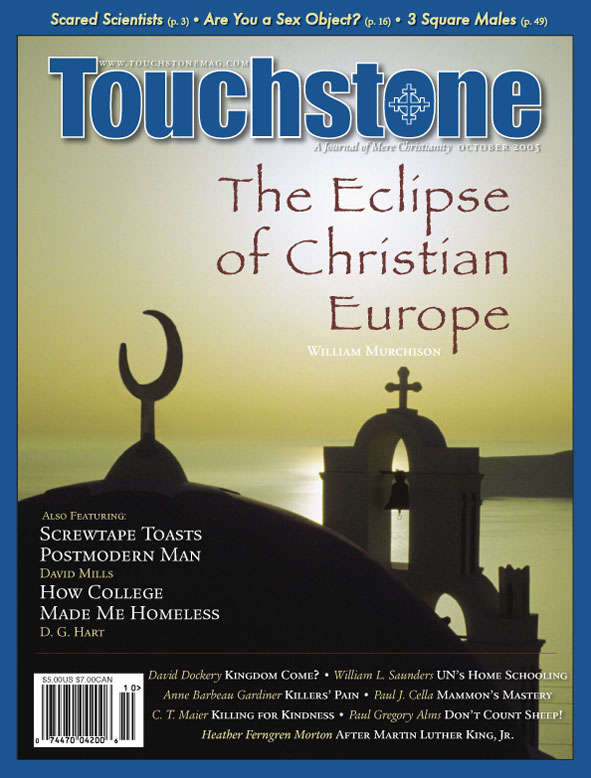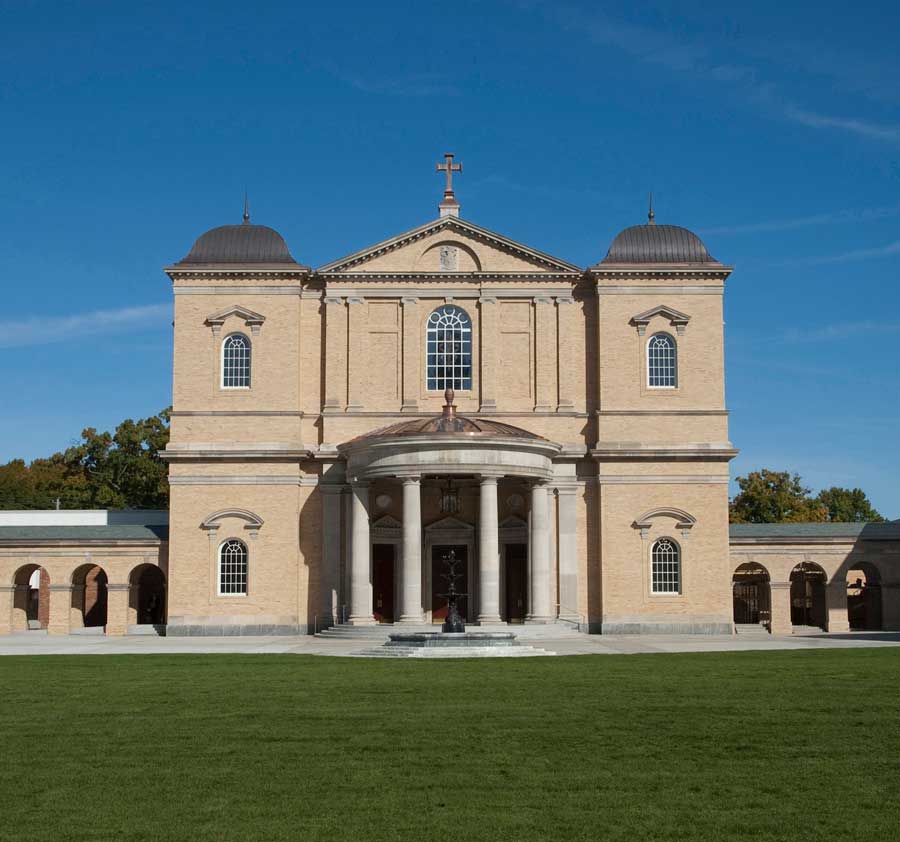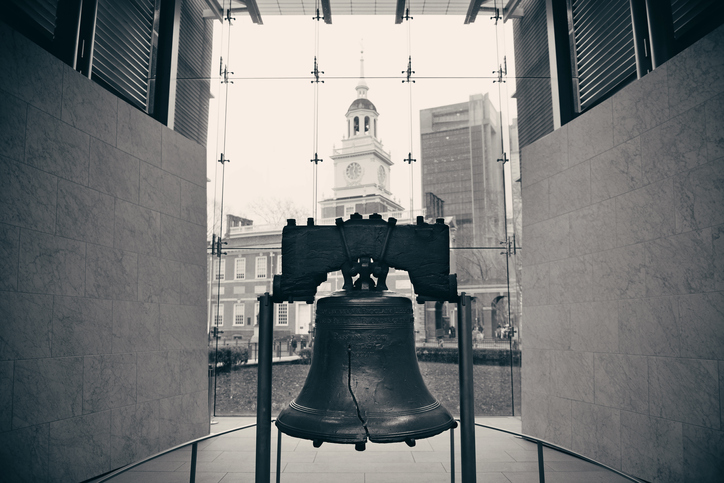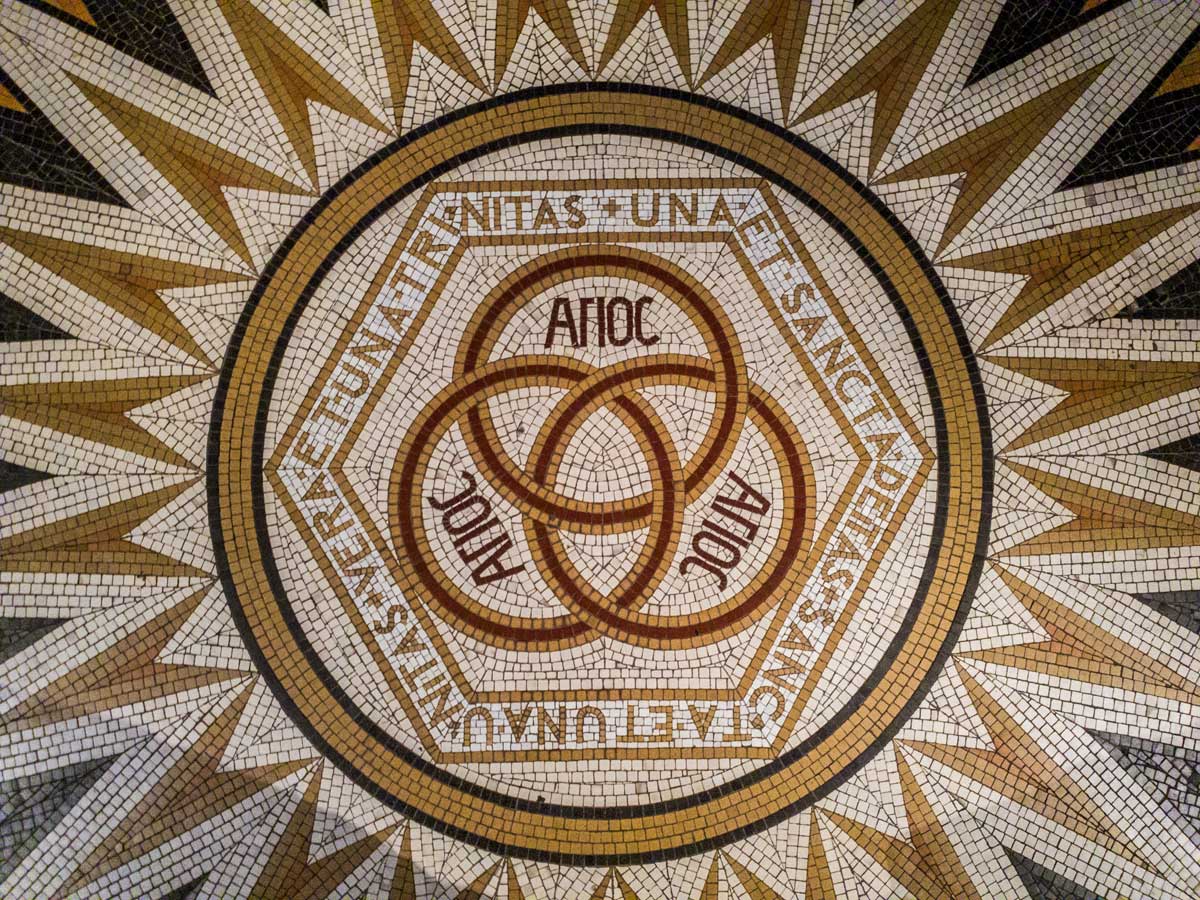Feature
Education & Alienation
What John Henry Newman Could Learn from Wendell Berry
What fellowship hath Jerusalem with Athens? When Tertullian asked that question in the late second century, the prospects for reconciling Western Christianity with Greek learning did not look particularly promising. But today this query sounds as strange as he thought the academy was to the church, for Jerusalem and Athens—the study of subjects like Christian theology and the classics, not to mention languages and literature, history, and philosophy—have become so marginal to the enterprise of advanced learning that their students huddle together as much as possible for support, encouragement, and a sense of importance.
But the fellowship between Jerusalem and Athens, and Berlin, London, Rome, and Philadelphia for that matter, is not simply the result of the rivalry between the humanities and the social and natural sciences. It is the result also of the frankly utilitarian and vocational turn taken by most colleges and universities, a turn to “practicality” that has relegated the liberal arts to a course of study without obvious career potential.
What may be overlooked in the welcome reconciliation of church and academy is the emergence of a conception of liberal education that is identified with the West but is fundamentally at odds with the very civilization its advocates have hoped to defend and preserve. The West, after all, is an abstraction if it is so geographically elastic as to embrace a civilization so broad as to include North America and the Middle East. Yet in efforts to defend the value of a liberal education, the idea of the West that stands behind such arguments too often results in a conception of the humanities that is inhuman, because it is severed from the places and peoples that embody Western civilization.
Rival Notions
Contemporary proponents of liberal education are seldom aware that the current plight of American higher education is in fact the product of liberal education itself. Here it is important to recognize that two rival notions of liberal education, both of which have deep roots in the history of the West, are also responsible for competing understandings of a good education. (I am indebted for the following to Bruce Kimball’s particularly valuable Orators and Philosophers.)
The older of the two was the liberal arts ideal, developed by the ancient Greek and Roman humanists, whose purpose was the training of virtuous citizens with the rhetorical skills necessary for participation in the city. Initially, the curriculum consisted of the trivium, namely, grammar, rhetoric, and logic. In late antiquity came the addition of the quadrivium, the scientific arts of arithmetic, music, geometry, and astronomy.
The aim of this notion was to acquaint students with the great minds of the past and to pass on a tradition of wisdom and learning. This tradition survives in those Great Books programs that persist at places like St. John’s College and that are increasingly being adopted by Roman Catholic institutions.
The second notion saw the inherited tradition of the trivium and quadrivium as only a means to the end of philosophical and theological wisdom. With the structural possibilities this idea opened up, such as professional faculties of law, medicine, and theology, and graduate studies that led to the Ph.D. (a doctorate of philosophy), its lasting legacy is its emphasis on intellectual creativity and original thinking.
It fueled the educational models of Bacon, Descartes, and Locke, which stressed new knowledge over received or old learning. It culminated in the pursuit of graduate study and academic specialization that now dominate research universities and even liberal arts colleges.
Two distinct conceptions of liberty inform these notions. The older model stressed a received tradition and regarded education as only appropriate for free men (men who were not dependent on manual labor) who had the leisure for study and the responsibility to exercise their freedom for the good of the city. The newer version stressed originality of thought and regarded education as a form of liberation that would free persons from the narrowness and constraints of human limitations. In its Enlightenment iteration, it signified liberation from family, land, and creed.
For obvious reasons, most educational conservatives, advocates of Jerusalem and Athens, side with the older model of the liberal arts. But inherent in both is a problem that should trouble those who are more traditional or conservative in their educational outlook: the end envisioned in each model favors cosmopolitanism over parochialism.
In each construction, an educated person is someone who, after studying the right books, is identified more by the ideas he thinks or the knowledge he possesses than by his or her membership in family, community, or church. The aim of the older liberal education model may not have been so rootless. But the humanistic educators who appropriated it in the twentieth century generally rendered it with few ties to the local settings from which students came. The new model was explicit in seeking to weaken those connections.
The result is a liberal arts education that is supposed to yield a person whose mind has been freed from the constraints of prejudice, the narrowness of specialization, the blindness that comes with folly. The newer model is more obviously guilty of regarding attachments to family, region, or faith as illiberal. But by lumping together a variety of authors and texts under the umbrella of “the West” or “the humanities,” the older model has tended to produce students freed from attachments to the personal relationships that nurtured them, an ironic outcome given the strong sense of the local and the particular in most of the works in the literary canon of the West.
A Cosmopolitan End
One of the classic statements on Christian liberal education, John Henry Newman’s The Idea of a University, helps to illustrate this problem. The author, who was giving a series of lectures in 1852 at the request of an Irish bishop, with the idea of establishing a Roman Catholic university in Ireland, drew upon the older model even though his argument for including theology in the curriculum was a novelty.
Newman’s lectures continue to inspire those Christian educators who uphold the ideals of academic breadth against specialization’s narrowness and of the integration of faith and learning. Even so, his abstract conception of liberal education is one that highlights the weakness of the old model even in its better and modified Christian version.
In Discourse V, “Knowledge, Its Own End,” Newman goes to some length to identify what exactly constitutes the liberality of a liberal education. A variety of studies may be considered liberal. Simply because something is useful, vocational, or professional does not mean it is not also highly intellectual, and so “liberal in comparison [to] trade and manual labor.”
“That alone is liberal knowledge,” Newman argues, “which stands on its own pretensions, which is independent of sequel, expects no complement, refuses to be informed . . . by any end, or absorbed into any art, in order duly to present itself to our contemplation.” Newman uses theology to illustrate how liberal knowledge is simply intellectual contemplation. Theology, if limited to the purposes of catechetical instruction or pulpit exhortation loses “the particular attribute which I am illustrating; just as a face worn by tears and fasting loses its beauty, or a labourer’s hand loses is delicateness;—for Theology thus exercised is not simple knowledge, but rather is an art or a business making use of Theology.”
At other points in this section Newman describes liberal education in terms that qualify this seemingly abstract, even mystical, idea of knowledge. He will use the language of seeing things whole and thus affirm the need for theology to have a central place in a liberal education. Balancing this call for breadth of mind or comprehensive knowledge is Newman’s warning against the dangers of academic specialization. He also attempts to retain an emphasis on virtue as a prominent component of a liberal education.
Still, Newman returns repeatedly to the idea of liberal education as “simply the cultivation of the intellect,” or something the object of which “is nothing more than intellectual excellence.” To give flesh to this seemingly spiritual conception, Newman writes:
Liberal Education makes not the Christian, not the Catholic, but the gentleman. It is well to be a gentleman, it is well to have a cultivated intellect, a delicate taste, a candid, equitable, dispassionate mind, a noble courteous bearing in the conduct of life;—these are the co-natural qualities of a large knowledge; they are the objects of a University.
Berry’s Culture
Newman’s argument offers welcome relief to those who lament the egalitarian and utilitarian pressures placed upon contemporary American higher education. But I am conflicted here because in another part of my considerations about liberal education are passages from Wendell Berry, the Kentucky farmer and writer, about the problems that attend the cosmopolitanism implied by Newman’s exposition.
In his essay, “The Work of Local Culture,” published in What Are People For?, Berry laments the destruction of the farming communities and land in his region of Kentucky, about an hour northeast of Louisville, and lays the blame at the feet of the modern conveniences we who live comfortably in an industrial society take for granted. He raises a profound question for proponents of liberal education who see it as an effort to conserve the received wisdom, institutions, and culture of the West.
About halfway through the essay, Berry picks up the theme of the succession of generations, and of how, after a time of apprenticeship or military service, sons returned home to carry on the family’s work and ways. He gives as examples the stories of Odysseus, the Prodigal Son, and various Shakespeare narratives.
Wordsworth’s poem “Michael” describes a significant milestone in the cultural history of the West, according to Berry. The son goes to the city but “is corrupted by it, eventually commits a crime, and is forced to seek a hiding place beyond the seas.” This poem is “the story of rural families in the industrial nations from Wordsworth’s time until today. . . . The children go to the city, for reasons imposed by the external economy, and they do not return; eventually the parents die and the family land, like Michael’s, is sold to a stranger. By now it has happened millions of times.”
“Our schools and colleges are fundamentally implicated in this failure of generational succession,” Berry continues:
The schools are no longer oriented to a cultural inheritance that it is their duty to pass on unimpaired, but to the career, which is to say the future, of the child. The orientation is thus necessarily theoretical, speculative, and mercenary. The child is not educated to return home and be of use to the place and community; he or she is educated to leave home and earn money in a provisional future that has nothing to do with place or community.
Newman was discussing the passing on of a civilization and Berry a culture, the former being inherently intellectual and abstract, the latter necessarily involving the local and particular. Berry’s defense of local culture is derived from his own appropriation of the civilization that Newman vigorously defended. Chances are that they would agree on most of the aims of liberal education and the important books that students should read.
Homeless with Dante
Still, the question of cultural succession broadly construed is a real one that is often missed in Newmanesque defenses of liberal education. The problem arises when graduates of the university fail to return home to work with family and friends, and so preserve the local culture that nurtured them as sons, daughters, cousins, grandchildren, church members, and neighbors.
We are left with the dilemma Berry describes: Does a liberal education so broaden the minds of its pupils that it turns them into learned cosmopolitans who cannot go home anymore? In other words, how can students go back to the farm after having read Homer, Dante, and Shakespeare?
Or, to put it another way, can these students even return to their suburbs (many of which were built on farmland)? The problem is not one simply for farming communities. It is one for small towns, big cities, and exurbs.
This is a personal question for me, because I am a product of the educational system that Berry laments. The humanistic education I received over the course of too many degrees enabled me to escape my past, at least partly.
I grew up in Levittown, Pennsylvania, the home of some of Philadelphia’s worst industrial excesses, and now live in the tony Philadelphia neighborhood of Chestnut Hill. I am close enough to aging parents to monitor their condition and lend a helping hand. But I have to admit that if I had to live in the neighborhood where I grew up, I would feel as if I were being consigned to the Soviet Union of my youth. And the reason has almost everything to do with my education.
I can rationalize that Levittown is not really a neighborhood of Gemeinschaft warmth and substance, that the fundamentalist church to which my parents took me ministered an impoverished version of Protestant Christianity, or that my real roots are the farming communities of North Carolina and Pennsylvania where my parents were reared. But underneath such sophistication is a less pleasant reality: My education, my reading habits, and my cultural interests have turned me against the place where my parents have lived for practically all of their adult lives.
The issue Berry raises is not one of the snobbery that often afflicts the educated. The issue instead is the effects of a truly liberal education. By so broadening the mind, does it narrow the person? By liberating the educated person to see things whole, does it shackle that person to a blindness than cannot recognize the full scope of our humanity? In Newman’s day the conservatism of English society may have prevented any liberally educated person from neglecting the importance of local and parochial attachments. But in a highly mobile society in which education often serves merely to advance a career, a liberal education cannot depend on such implicit support.
Thin Versions
I was reminded of these questions last summer when reading the terrific novel by Richard Russo, Empire Falls. It is about a small town in Maine that had its glory days when the mills were churning with activity and sustained a vibrant set of civic and cultural institutions. But with changes in the economy and the closing of the mills, the town became the home of people with slim prospects and even slimmer ambitions.
The hero, Miles Roby, runs a diner almost everyone goes to, and so he knows everything that is going on, except for some of the most important things in his family’s past. Miles had gone to college and had the chance to leave Empire Falls—in fact, that her bright son would escape the cultural blight that had destroyed the town was his mother’s greatest hope. But, to care for his sick and dying mother, he returned to Empire Falls, foregoing his degree, and took over the diner to make ends meet.
And in so doing, Miles was able to see how all those kids with whom he went to school turned out in their callings as sheriff, mayor, insurance broker, and attorney, as well as having the opportunity to see the adults of his youth from the perspective of his own attempts to be a mature adult. In many cases these insights were painful—he saw ne’er-do-well children grow up to be adult ne’er-do-wells, except now they might be wearing a badge and the gun that goes with it.
In comparing Miles’s experience to my own, I have to admit that in choosing to leave Levittown, I gave up something fundamentally human. I now live with a great set of neighbors, but they know only a very thin version of me and I know only a thin version of them. Of course, I also gained things that Miles relinquished by staying in Empire Falls. Restaurants, libraries, sports stadia, museums, and art house cinemas—the sorts of attractions that make cities like Philadelphia points of destination are generally available to someone living on the income a liberal education secures.
But reading Russo’s novel from the perspective of Berry, I am haunted by the potential narrowness of a liberal education, since it tempts us to look at students and ourselves as merely minds without bodies, that is, without reference to the families and communities in which we learned to talk, treat others politely, endure eccentric neighbors, root for football teams, and fall in love.
A Human Education
This is another way of saying that a liberal education should be truly a human education. A liberal education has been synonymous with the humanities, hence the fellowship of Jerusalem and Athens. The subjects of a liberal education to a large degree involve matters such as language and creativity, the aspects of human existence that make people different from other parts of the created order and from each other. But by so emphasizing those creative and literary achievements that have stood out in the history of the West, twentieth-century defenders of liberal education, even of the older sort, neglected the particular cultures in which such creativity was sustained and flourished.
What happened somewhere between Columbia University’s initial offerings in Western Civilization just after World War I and the rise of such recently formed organizations as the American Academy for Liberal Education was that, to give authors as diverse as Plato and Austen coherence and a sense of the particular, educators needed to organize the canon around the defense and preservation of the West. That project has accomplished much good, and no matter how deficient my education is, I am the beneficiary of it.
But the West is merely an abstraction if severed from the local settings in which Westerners live, from Empire Falls, Maine, or Levittown, Pennsylvania. In fact, the very survival of liberal education may depend on efforts to leaven Newman with Berry, or to ground intentionally the liberally educated mind in the particularity of local cultures.
For without the real generation of children who learn about the West and its virtues from parents, neighbors, teachers and pastors, a liberal education may become little more than a game for cosseted academics, or a disembodied five-foot shelf of decorative books, cut off from real people whose lives and communities embody and situate the true, the good, and the beautiful.
D. G. Hart works for the Intercollegiate Studies Institute (www.isi.org) and is an elder in the Orthodox Presbyterian Church. He is the author of A Studen't Guide to Religious Studies (ISI Books) and John Williamson Nevin: High Church Calvinist (P&R Books).
subscription options
Order
Print/Online Subscription

Get six issues (one year) of Touchstone PLUS full online access including pdf downloads for only $39.95. That's only $3.34 per month!
Order
Online Only
Subscription

Get a one-year full-access subscription to the Touchstone online archives for only $19.95. That's only $1.66 per month!
bulk subscriptions
Order Touchstone subscriptions in bulk and save $10 per sub! Each subscription includes 6 issues of Touchstone plus full online access to touchstonemag.com—including archives, videos, and pdf downloads of recent issues for only $29.95 each! Great for churches or study groups.
Transactions will be processed on a secure server.
more from the online archives
calling all readers
Please Donate
"There are magazines worth reading but few worth saving . . . Touchstone is just such a magazine."
—Alice von Hildebrand
"Here we do not concede one square millimeter of territory to falsehood, folly, contemporary sentimentality, or fashion. We speak the truth, and let God be our judge. . . . Touchstone is the one committedly Christian conservative journal."
—Anthony Esolen, Touchstone senior editor









